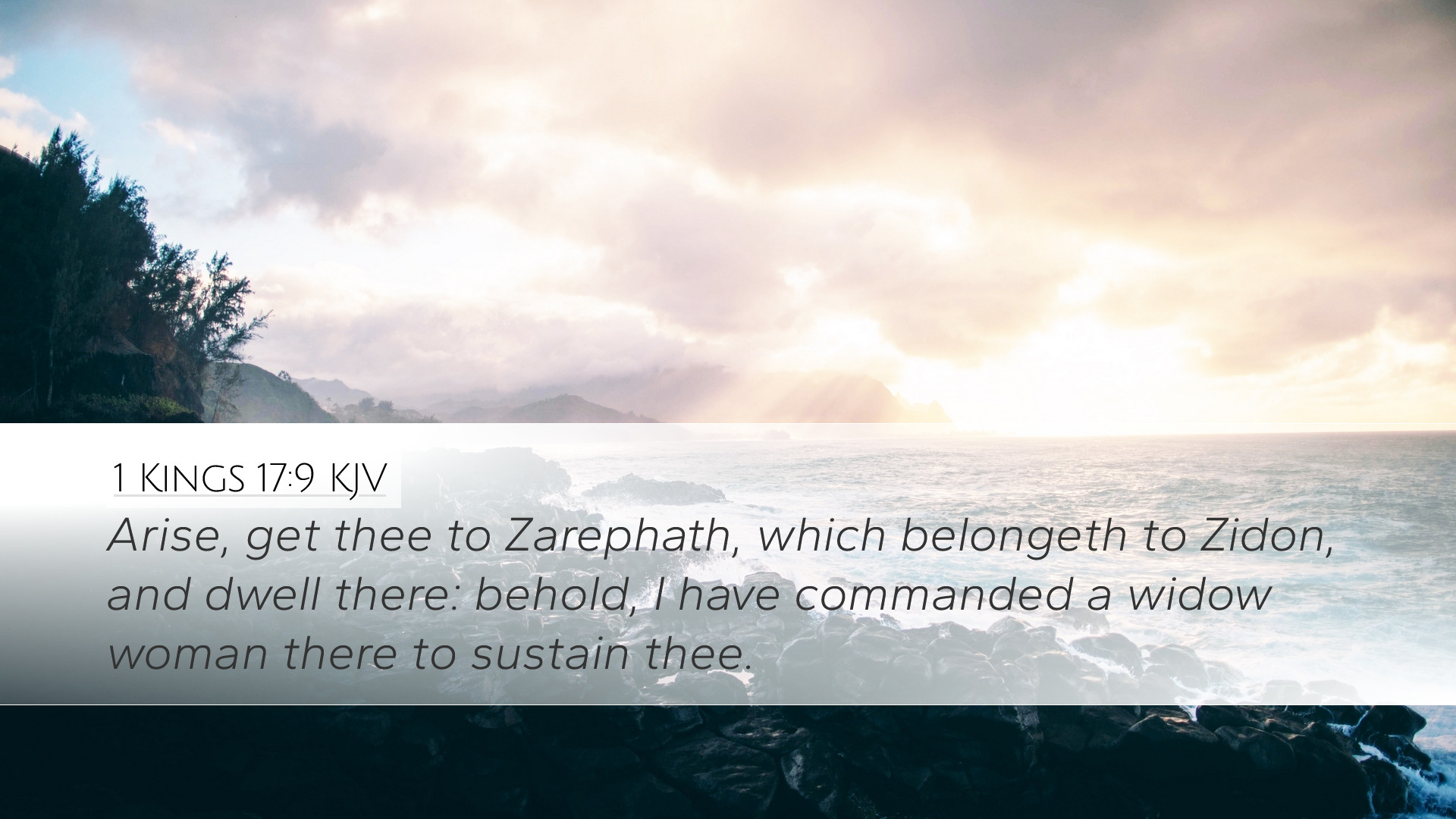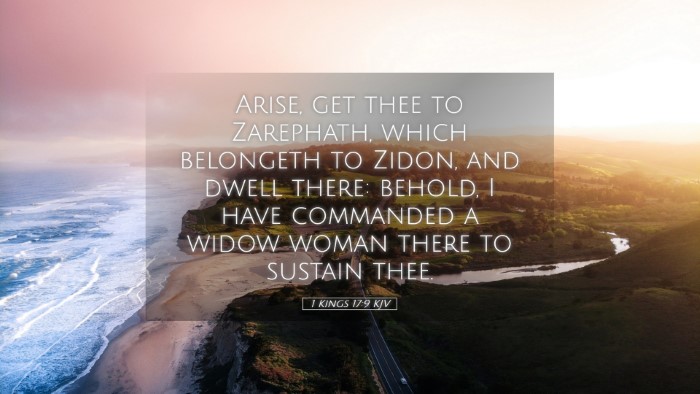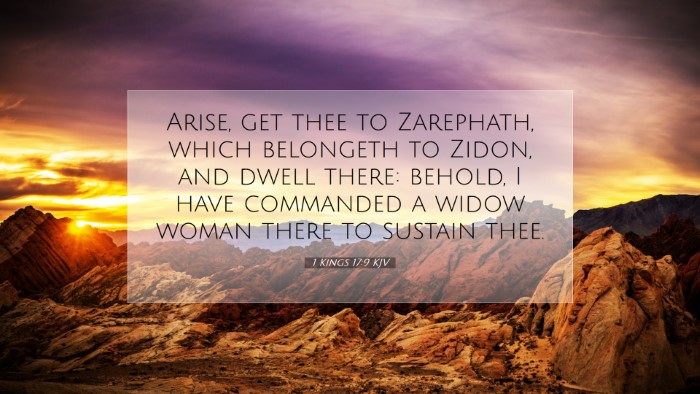Commentary on 1 Kings 17:9
In this pivotal moment within the narrative of 1 Kings, we find God's call to the prophet Elijah. The context is critical; Israel is in a state of spiritual and physical drought due to the reign of King Ahab and the worship of Baal. The Lord's command to Elijah serves as a profound lesson for contemporary Christians, pastors, and scholars alike.
Verse Analysis
1 Kings 17:9: "Arise, get thee to Zarephath, which belongeth to Zidon, and dwell there: behold, I have commanded a widow woman there to sustain thee."
Historical Context
Elijah's journey to Zarephath reflects the larger narrative of divine providence and human vulnerability. The significance of Zarephath, a place in Phoenicia near Sidon, is noteworthy as it is a territory outside Israel, emphasizing the extent of God's sovereignty over all nations. The widow, who is to sustain Elijah, represents not only a physical sustenance but also a theological symbol of God’s provision in times of great need.
Theological Insights
- Divine Providence: God’s provision is seen in His command to Elijah and the widow's willingness to obey, demonstrating that God can and does provide for His servants even in seemingly hopeless situations.
- Faith and Obedience: Both Elijah and the widow exemplify faith. Elijah must trust God’s word despite the risks involved in going to a foreign land. The widow, in her poverty, displays radical faith by providing for Elijah, which ultimately leads to God's miraculous provision for her.
- Inclusivity of God’s Grace: This outworking of divine grace showcases that God’s mercy extends beyond the covenant community of Israel, as seen in His care for a foreign widow.
Commentary Excerpts
Matthew Henry: In his commentary, Matthew Henry observes that God often instructs his servants to go to unexpected places for provision and sustenance. He highlights the notion that true trust in God often leads believers into unfamiliar territory, where they must rely solely on divine assistance.
Albert Barnes: Barnes provides insight into the significant transitional moment the widow represents in Israel’s history. He highlights that her interaction with Elijah serves not only to illustrate God's care for His prophet but also to teach the true nature of faith amidst dire circumstances.
Adam Clarke: Clarke emphasizes the cultural implications of Elijah being sent to a widow, noting that such a figure in ancient Near Eastern society had little agency or resource. Clarke’s analysis implies that God is deeply engaged with human suffering and oversees situations that, from a human perspective, seem utterly hopeless.
Application for Today
The extract has multiple applications for modern Christians, especially pastors and church leaders:
- The Importance of Listening: Just as Elijah heard and obeyed God’s command, leaders today must attune themselves to God’s direction, which may lead them into unfamiliar ministry contexts.
- Empathy and Provision: The widow illustrates the call to care for those who are vulnerable. Churches must seek to extend grace and support to those in need, trusting God to sustain the community as they do so.
- Faith in Crisis: In times of crisis or scarcity, believers are reminded to maintain their faith. The widow’s act of preparing a meal for Elijah despite her lack illustrates that faith often acts in the face of need, prompting God's provision.
Conclusion
In conclusion, 1 Kings 17:9 serves as a profound reminder of God’s sovereignty and care in uncertain times. The narrative of Elijah and the widow speaks eloquently about faith, provision, and God’s grace transcending boundaries. As pastors and theologians unpack this verse, they may encourage a faith that acts upon God’s commands, trusting in His divine providence even when circumstances seem bleak.


